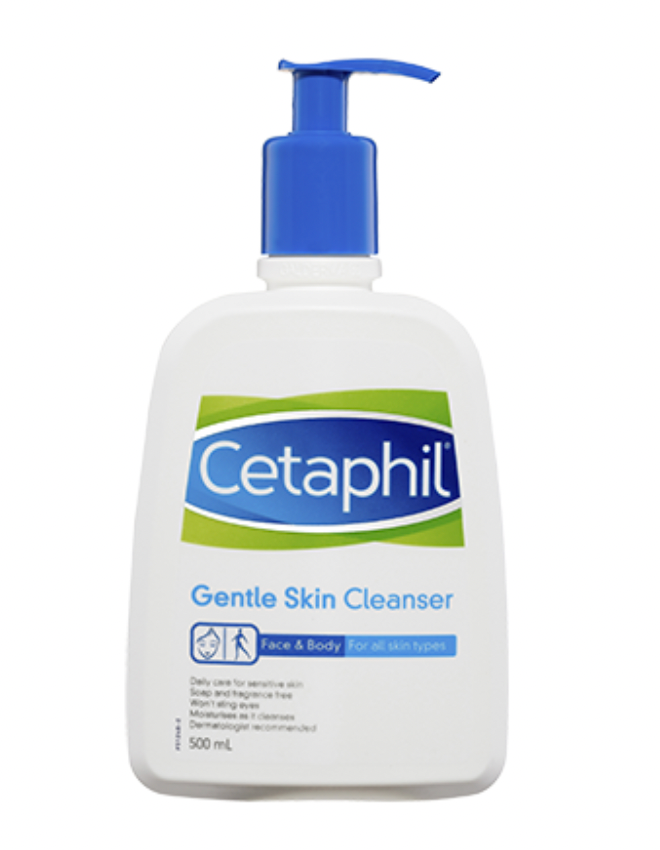According to a 2019 study, around 60-70% of women have experienced some level of skin sensitivity. While the signs of skin sensitivity may fluctuate depending on the season, pinning down what exactly is irritating your skin can be tough.
To get some insight into what causes sensitive skin and how to treat it, we spoke to Dr Lisa Byrom, a dermatologist at South East Dermatology, Brisbane. Here's what she had to say.
What characterises sensitive skin, and what are the main causes of it?
AdvertisementADVERTISEMENT
Byrom noted that sensitive skin commonly presents as dry, rough, scaly or itchy. It often appears this way following reactions to wind or changes in the weather.
She also notes that irritation from excessive washing and cosmetic products can all play a role in causing sensitive skin — which is why it's so important to ensure that your skincare products are packed with ingredients that are compatible with your skin type.
How can various lifestyle factors impact the skin?
While a range of underlying conditions can be the cause of sensitive skin symptoms appearing, a range of lifestyle factors also have the potential to create skin irritation, roughness and tightness.
Exercise (sweat and workout gear)
Sweat plays a huge role in the health of skin all over the body — not just on the face. While sweating has its benefits (like purging salt and minerals, water, bacteria, oils, dirt and other impurities), having it on the skin for too long can have an adverse effect. These include the clogging of pores and hair follicles, and potentially aggravating acne.
"Sensitive skin can be more prone to develop irritation. Irritants include humidity, friction and sweat so try to wear lightweight, breathable clothes made of natural materials such as bamboo or cotton," said Dr Byrom.
Wearing tight exercise clothes can also prevent the skin from breathing while working out, which can lead to irritated heat rashes. Certain fabrics and washing detergents used to clean workout clothes can also contribute to skin issues.
AdvertisementADVERTISEMENT
"Allergens can include the dyes that are used to colour clothes. White clothes are the least likely to cause a reaction. If you do use coloured clothes ensure that you wash them before use to reduce this risk," added Dr Byrom.
"Washing your clothes in laundry rinses containing benzalkonium chloride can cause skin problems even in people without sensitive skin. Avoiding these can reduce your risk of developing sensitivity."
Air pollution and air conditioners
"Air pollution and air conditioners can dry and irritate the skin," said Dr. Byrom.
Air conditioners suck moisture from rooms, and in turn, can contribute to the dehydration of skin in the process. Since their job is to cool the atmosphere, the body also reduces the production of sweat while in air conditioning. This slows oil production of your skin, which can lead to dull, dehydrated skin.
If you live in a metropolitan area, it may be hard to avoid some air pollution. Medical professionals have noted that "exposure of the skin to air pollutants has been associated with skin aging and inflammatory or allergic skin conditions."
"I recommend increasing your moisturising when in these environments," recommended Dr Bryom.
Poor sleep
Quality sleep is the key to so many areas of good health — and it especially impacts the skin. The skin undergoes a healing process at night and gives our body the chance to restore the skin from the stressors it encounters during the day.
It's been noted that in the first three hours of sleep, "the pituitary gland produces somatotropin — the human growth hormone." Without this hormone, the skin cannot be completely repaired. We also naturally perspire more when we sleep, which rebalances the bodies hydration overnight to maintain moisture in the skin.
AdvertisementADVERTISEMENT
Inadequate sleep also has the potential to raise cortisol levels, which can trigger inflammation, and leave the skin more prone to acne and other reactions.
Chlorine
While swimming in a pool or ocean has immense mental and physical benefits, it is important to note the impact it can have on the skin. Since chlorine is a natural irritant, it has the potential to strip the skin of its natural oils, which can lead to dehydration and itchiness.
"Chlorine can irritate and dry the skin, especially in high concentrations," said Dr Bryom.
"Before swimming in a chlorinated pool moisturise your whole body to give your skin a layer of protection. Rinse off in the shower afterwards using a soap-free wash then moisturise your body again."
What are the best ways to protect sensitive skin?
Since the symptoms of sensitive skin may change over time, it's important to implement seasonal skincare to treat irritation accordingly.
"It’s a good idea to increase moisturising in winter and look for ingredients to help restore the skin's moisture barrier function, such as hyaluronic acid," said Byrom. Skin dryness is commonly intensified during winter when there is low humidity due to increased transepidermal water loss.
Byrom recommends both soap-free and fragrance-free cleansers such as Cetaphil Gentle Skin Cleanser, and serums that include niacinamide and hyaluronic acid.
According to Byrom, there are a few key skincare ingredients people with sensitive skin should avoid, including soaps, highly fragranced products, and products with harsh abrasive exfoliants.
While sensitive skin may not be entirely avoidable, we're all about protecting our skin and giving it the best shot possible — considering it's Skin Awareness Month, there's never a better time to learn more.
AdvertisementADVERTISEMENT








